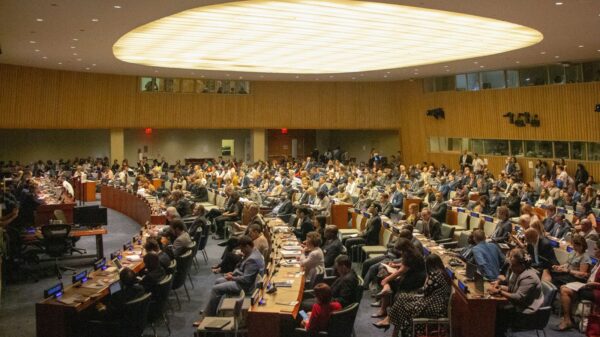
In a period of rapidly rising tuition fees and mounting student expenses, one might expect the average American college student to be very frugal with their money. However, according to an article by the Wall Street Journal, the median spending of college students increased by 38% between 2002 and 2022.
Instead of adopting prudent spending habits, there is a growing concern by financial experts and policymakers that students are spending without being able to take into consideration their long-term financial situation. Especially with the availability of credit cards, it has dug a financial hole for college students.
Back-to-school shopping, which helps students prepare for a smoother transition into education, has now turned into an unintentional spending spree. Back-to-college spending has increased by almost $4.7 billion since last year, according to the National Retail Federation. Medical and insurance expenses are not added here, the combined data of which would significantly improve overall spending figures.
Throughout the homecoming season, students are likely to be enticed to spend money on tickets, outfits, food, and other indulgences, a habit that is already customary for many. However, some students view spending money on themselves as a treat.
Niyah Bell, a sophomore international business major said, “I don’t really feel pressured into spending more. I look at homecoming as a time where I want to spoil myself. My major expense for homecoming was my hair, and coming back to school, it was transportation since I live 12 hours away.”
Unfortunately, many students experience a “fear of missing out” (FOMO) on social experiences, which pressures them into spending money using credit cards, not only establishing impulsive spending habits but also ruining their credit score post-grad.
According to a survey conducted by US News, 46.1 percent of college students have credit card debt with almost 30 percent of the students accumulating debts of more than $2,000.
Bijay Pandey, a sophomore computer science major said it can be hard to keep up with credit cards, even if some companies offer them with minimum interest rates for students.
“The convenience of a credit card makes it easy to indulge in impulsive spending often and you can rack up a debt without realizing,” Pandey said. “If colleges and credit card providers gave students a more comprehensive guide to properly utilizing credit cards, these long-term consequences could be averted.”
Many experts agree with Pandey, that the majority of the credit card debt netted by students is not solely through impulse spending. Paired with student loans after graduation, the debt among students only rises.
More recent issues like supply chain disruptions due to COVID-19 and the Ukraine-Russia war have also caused a massive increase in the prices of goods and services. The surge has only added more pressure on college students.
According to an article by The New York Times, gas prices in 2023 alone, for example, have risen by 20 percent making car ownership even more expensive.
Dr. Angela Jones, an assistant professor in Howard’s department of computer information systems and supply chain management said, “We have all seen prices rising on the consumer products that we purchase, and this also applies to educational costs.” The pandemic had a financial impact on most organizations, leading them to seek recovery strategies. Many companies have adopted measures to enhance the flexibility of their operations and minimize the chances of disruption, which has, in turn, led to increased expenses.
“These types of costs would be especially seen in the cost of textbooks and supplies needed for school,” Jones said.
The surge in these prices is evident, according to a report by the US Bureau of Labor Statistics, the price for college textbooks has increased by 7 percent in the last three years. Basic stationery items also come with a much higher price tag along with the need for technological resources, such as computers that cost hundreds of dollars, further straining students’ finances.
Additionally, Jones said, “Beyond supply chain specific costs, the market has seen a significant impact in housing costs.”
According to apartmentlist.com, rent prices have risen by 5.2 percent in D.C. in 2023 alone, making it even more difficult for students to afford decent housing at affordable prices. For comparison, in 2022, the average monthly rent for apartments in D.C. was $2000 to $3000, while it was $1000 to $1500 for the same in Texas.
Jones also mentioned how supply chain disruptions especially impact those living paycheck-to-paycheck, which applies to over 60 percent of college students, according to a Community College Survey of Student Engagement (CCSSE) report.
She added, “There is evidence that supply chain disruptions have a significant impact on vulnerable populations. Disruptions result in shortages and higher prices and those who are living paycheck-to-paycheck will potentially have less of the products that they need in stock and they won’t have the budget to make ends meet when prices are rising.”
All of these financial constraints also take a toll on college student’s mental health, which is later reflected in their academic life and career. According to a report by the National Library of Medicine, around 91 percent of students have reported that their mental health has been impacted due to financial stress, with many worrying about their future in the job market.
Jones suggests students acquire a diversity of skills that can be used in different industries.
“For example, students can stay up to date on learning new skills, such as analytical skills, so that if they experience a disruption in their career and need to pivot to a new role, then they will be prepared for a variety of roles and potential opportunities,” she said.
Worrying about paying off loans post-graduation in such an unpredictable job market, many students understandably feel immense pressure. While Howard has made efforts to provide students with mental health resources, with up to eight free counseling sessions per academic year, students still find it hard to cope with the various financial hurdles they are facing during this vulnerable time.
Niharika Mishra, a computer information systems major at Howard said, “While I feel that Howard has made significant efforts to prepare students for the job market post-graduation, I still worry about my future a lot. I have tried to take advantage of the counseling services on campus, but I do wish they were more accessible. A proper online scheduling system would probably make it easier to access these services.”
It is evident that the financial landscape for American college students has undergone significant changes in recent years. Factors like supply chain disruptions increased essential goods and services costs, and soaring rent prices have added to an already heavy financial burden.
College students are in a vulnerable situation as they juggle through financial hardship in the midst of chaos. As we navigate these challenges, it’s essential for colleges and students themselves to work together to ensure responsible financial habits and provide the necessary support systems to help students thrive academically and financially in these uncertain times.
Copy edited by Whitney Meritus













